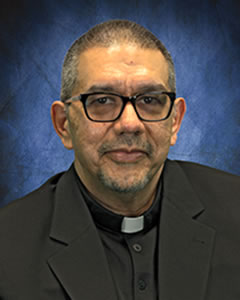
From the Director
Once, Columban Fr. Bill Morton was reminiscing with me about his seminary days in the early 1980s. At that time, the most popular theologian in the Western world was Karl Rahner. Fr. Bill said, “it was great stuff and I was eager to share Rahner’s theology in my future mission. I felt the people needed to hear it.” After ordination, he was sent to Taiwan and came to a great realization. He said, “the Taiwanese people never heard of Karl Rahner, didn’t know what he taught, and didn’t care!” It was cold water splashed on his face. This was not to say that studying Rahner didn’t have benefits. Fr. Bill would attest that Rahner’s teaching provided him personal growth. However, his missionary experience expanded that growth to a more global view.
As a U.S. citizen, I grew up believing that the matters of the U.S. were the matters of the world. What was important to us was important to the world. Much like Fr. Bill, living some 25 years outside of the United States taught me a sobering lesson in that the U.S. is not the center of the world. Our issues are not the world’s issues, especially in the non-Western world. Case in point was September 11, 2001. On that particular day, I was working in a parish in southern Chile. We had meetings all morning, therefore, we were unaware of what happened in New York. When we broke for lunch around noon time, a phone call from Santiago alerted us to turn on the news. We were horrified and dumbfounded by the images we saw. The two planes crashing into the Twin Towers seemed to be from a movie. I myself was questioning, “is this real?” In time we were able to connect the dots. On that day, Chile came to a full stop. Business were closed and public services were shut down. This continued on to the next day. However, by the third day, Chile returned to normal. The Chilean news focused on the issues of the country and their area of the world. In the following days and months, if there was any comments or updates about September 11, it was usually reduced to a one- or two-minute sound bite during the news. Their focus was not September 11, 2001.
As a U.S. citizen, I grew up believing that the matters of the U.S. were the matters of the world. What was important to us was important to the world.
The Missionary Life This was a stark contrast to experience of the United States. My relatives told me that for months, the news’ main focus was the tragedy of September 11, 2001. Obviously, it was the pain of the nation, but I did not have that experience. I recall the words of my former rector of the seminary, Columban Fr. Vic Gaboury, “this is the price of being a missionary. You’ll become a fish out of water with your own people.” Fr. Vic missioned in the Philippines during the 1960s. For the United States, it was a turbulent area for civil rights, marches, protests, and demonstrations. However, Fr. Vic was in the Philippines dealing with a prelude of a dictatorship, poverty, devasting hurricanes, and earthquakes. When he returned home, he felt like a fish out of water as his family talked about the civil rights era.
What value does a “fish out of water” experience bring to the missionary and to the Church? It wakes us up to another’s reality and history. We cannot presume that our little corner of the ocean is the entire ocean. Much like the prophets of the Old Testament, the missionary stands at the margins of his/her society and offers an expanded view to what is occurring in a specific reality. For instance, I cannot separate September 11 of 2001 from September 11 of 1973. It is the day when the dictator, General Augusto Pinochet, bombed the presidential palace and overthrew a democratically elected government leading to thousands of people murdered, tortured, and disappeared. As I commemorate the tragedy of the Twin Towers, I feel the sorrow and pain of the people of my mission country, Chile. The fish out of water reminds us that the ocean we belong to has many realities and depths of which we are unaware. Thus, we are the universal Church that strives for solidarity and empathy beyond our own experience.